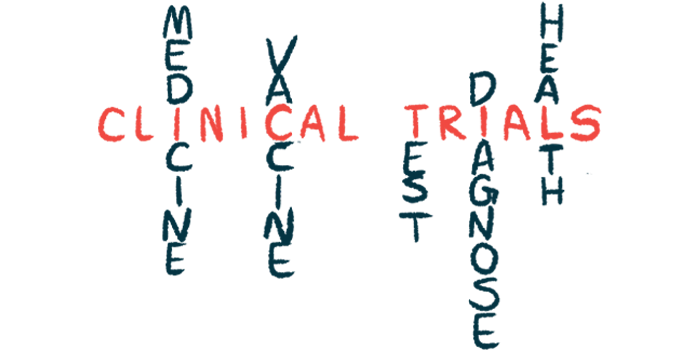Experimental drug K9 for ALS joins Healey & AMG Center trial program
Selection of Inflammasome oral therapy will move it into early clinical testing
Written by |

Inflammasome Therapeutics is teaming up with the Sean M. Healey & AMG Center for ALS at Massachusetts General Hospital to conduct a clinical trial evaluating its oral therapy candidate kamuvudine-9, or K9 for short, in people with amyotrophic lateral sclerosis (ALS).
The collaboration is part of the Healey ALS MyMatch program, an initiative that aims to match specific subgroups of ALS patients to experimental therapies that may work for them. The matches are based on biomarkers such as genetic variations or levels of specific molecules measured in bodily fluids.
The ongoing program involves a series of early Phase 1b/2a clinical trials that aim to deepen biological understanding and set the stage for further testing. If results are positive, drugs can be considered as future regimens for inclusion in the HEALEY platform trial (NCT04297683), which is testing multiple ALS therapies simultaneously against a shared placebo group, or enter Phase 3 testing.
Inflammasome, which responded to a call for applications put out a few months ago, is one of the first companies to be included in MyMatch.
“We are honored to be selected and delighted to enter this collaboration with the Healey & AMG Center at Mass General,” Paul Ashton, PhD, Inflammasome’s cofounder and CEO, said in a company press release announcing K9’s inclusion in the MyMatch program.
The causes of ALS are not fully understood, but there’s substantial evidence suggesting that uncontrolled brain inflammation may play a role in driving the neurodegenerative disease.
Inflammasome’s K9 drug aims to block proteins for which company is named
Inflammasome is named after a complex of proteins of the same name. As the name implies, the inflammasome plays key roles in driving inflammation. The company is developing K9 and other therapies to inhibit this inflammatory protein complex, with a goal of dampening such inflammation.
“We are developing a series of compounds targeting neuroinflammation, a disease process that characterizes such diverse diseases as ALS, multiple sclerosis, Parkinson’s disease, Alzheimer’s disease, and macular degeneration,,” Ashton said, noting that “two of these drugs are already in clinical trials and showing great promise.
According to Jayakrishna Ambati, MD, cofounder of Inflammasome, preclinical experiments testing K9 in models of ALS have been “extremely encouraging, showing a profound effect in reducing a biomarker that is prognostic of disease progression.”
Specifically, K9 reduced levels of neurofilament light chain (NfL) in patient-derived nerve cells and ALS animal models by 80%, Ambati said. NfL is a structural protein that’s released into the body’s fluids when nerve cells are damaged. It’s commonly used as a marker of nerve damage in neurological disorders like ALS.
We believe that K9, a multi-inflammasome inhibitor, has great potential for treating chronic diseases such as ALS, multiple sclerosis, Parkinson’s disease, and Alzheimer’s disease.
Ashton noted that “NfL is released by dying neurons.” And, while not specific to any one disease, the protein is “two-to-three times higher in those with Parkinson’s disease and 10-times higher in individuals with ALS,” Ashton said.
The release noted that Inflammasome is developing a new class of drugs, which it has dubbed Kamuvudines — one being K9 — for neurological conditions.
“Activation of inflammasomes causes neuroinflammation, which, in turn, is associated with diseases that involve neuronal cell death,” Ashton said. “Thus, we believe that K9, a multi-inflammasome inhibitor, has great potential for treating chronic diseases such as ALS, multiple sclerosis, Parkinson’s disease, and Alzheimer’s disease.”






